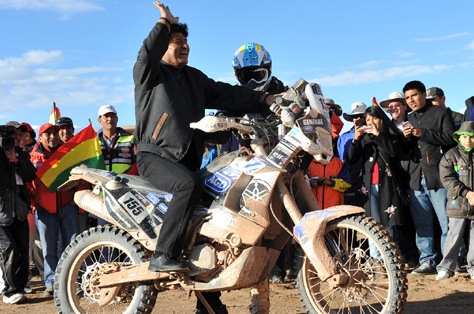 Photo credit to Xinhua / Reynaldo Zaconeta / ABI.
Photo credit to Xinhua / Reynaldo Zaconeta / ABI.
Though the late Hugo Chávez has been dead for over a year, the progeny of his democratic socialist movement elsewhere in Latin America are thriving — in part by playing much smarter regional politics than Chávez ever did.![]()
Even as Chávez’s heirs in Venezuela struggle to control a growing economic and governance crisis, the other children of chavismo, including Ecuadorian president Rafael Correa and Bolivian president Evo Morales, may be showing how to marry socialist ideology to a more sustainable co-existence with global markets.
All three leaders, including Morales, tweaked investors by nationalizing industries and, in the case of Morales, railing against the international patchwork of neoliberal institutions, including the World Bank and the International Monetary Fund.
As with Correa and Chávez, Morales came to power with a relatively anti-US disposition, and one of the first things that Morales, a former coca farmer, did upon taking office was to kick US drug enforcement agents out of the country. His steps have de-escalated the militarization and violence involved with US-led efforts to eradicate drug production in Latin America, and have likely emboldened the calls of other regional leaders to call for a new approach to illicit drugs, including legalization.
But if Morales has nationalized industries like a Venezuelan socialist, he’s run them like a Norwegian state manager.
That’s one of the chief reasons that Morales (pictured above), the country’s first indigenous leader, is such a favorite to win reelection to a third term as Bolivia’s president in general elections on October 12. Bolivians will also vote to elect the members of both houses of its Asamblea Legislativa Plurinacional (Plurinational Legislative Assembly).
Continue reading Morales set to cruise to easy reelection in Bolivia